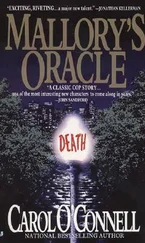“How many parents?”
“Hundreds.”
“What!” Had the old man gone insane? “You can’t be serious. They’ll choke the roads and-” And now she understood all too well. “That’s what you want, isn’t it. All the traffic will come to a stop for miles around… It’s like sending up a flare.”
The old man gave his apt pupil a generous smile. “Excellent metaphor- a distress signal. Do you know what these parents go through just to keep the story of a kidnapped child alive?” He looked out over his sleeping caravan. “They were invisible for so long. You’ve done a very good job of keeping reporters at bay.”
Nahlman nodded, though she could not take the credit for media control. Dale Berman had an idiot savant’s genius for manipulating reporters. To give Dale his due, he was brilliant at this game.
“The news media doesn’t know we’re alive,” said Magritte, “but I don’t think that will last much longer. As the caravan grows, people will notice. Oh, and your presence here will guarantee media attention. Finally the FBI will actually help these people.”
“But most of these parents have nothing to do with this investigation- their children won’t fit the victim profile.” Her words trailed off to a whisper. Of course the old man was already aware of this, and now she realized that the caravan parents must also know. “So the pattern of bodies on Route 66-that’s only part of it.”
“That’s right,” he said. “The only criteria for this road trip was a missing child.”
With stunning clarity, Nahlman saw the real caravan pattern in her list of license plates issued in coastal states, Heartland and Southland states. These parents came from all over the nation as representatives of grief- round eyes and Asian eyes and every shade of skin, carting prayer rugs and crosses and six-pointed stars. How damned democratic. This was America searching for her young; her numbers were legion, and she would not be stopped.
Her cell phone was ringing. The lighted number belonged to Dale Berman, and she let the call go through to voice mail. Agent Nahlman was too tired for another round of this man’s favorite game, Big Daddy Knows Best. She only wanted a little peace to listen to the music; some distant radio was playing a golden oldie. It was a car radio, and the song came from the Mercedes. Riker was behind the wheel and rolling across the campground, leading a small parade of five cars. Five! The lost parent was found.
It was early in the dark of morning, and the neon-green pickup truck was driving northwest through Kansas along a patchwork quilt of county roads and state roads far afield of Route 66. Mallory had an appointment with a farmer in a distant town. She would have made better time, but now her car slowed down behind a wide load, a tractorlike vehicle with mechanical wings jutting out into the next lane-no hope of passing here. She had only two and a half hours to get to the Finn homestead at the hour when a school bus had arrived one year ago, the hour when Ariel had been kidnapped from her home and killed.
It would be impossible to keep this appointment if the young detective drove the legal speed limit of a serial killer who wanted no traffic tickets. She was going to be late, and yet she did nothing to hurry the tractor that blocked her way, no horn blowing, no tailgating.
Mallory had lost her edge.
She was actually listening to the words of a familiar song played by a local radio station.
“-some fine things have been laid upon your table-”
This tune was not on Peyton Hale’s song list, nor did she remember it from her foster care days when Lou Markowitz had taught her how to dance to rock ’n’ roll.
“-but you only want the ones that you can’t get-”
It was a cut from an Eagles album that Riker had given her when she was eleven years old. At the time, he had told her it was more than just a gift of music-he had found her a theme song called “Desperado.” She had played this ballad a thousand times-and then put the album away when she was twelve.
“-your pain and your hunger, they’re driving you home-”
Riker thought that Agent Nahlman lacked Mallory’s t alent for scaring people.
The fed’s tone of voice was too civilized as she addressed the mothers and fathers of lost children, saying, “You can’t leave the safety of the group and go out on your own. You all know about Gerald Linden. Well, here’s something you don’t know. He wasn’t t he only murdered parent.”
This was news to Riker and he wondered if Kronewald was aware of it.
“Another dead parent,” said Nahlman, “was found in California. And one in Arizona. The crime scenes were identical to Mr. Linden’s. A lot of you knew both of these people. You belonged to the same Internet groups. W e have a serial killer focused on this caravan.”
Nahlman’s partner, Agent Allen, committed the sin of smiling when he stepped forward to hand out the route plans for the day. Next, he made the mistake of good manners, saying, “I know you don’t w ant to travel on the interstate, but please don’t t ake the highway exits.”
“Or you’ll die,” said Nahlman, doing damage control with more force. “If you leave the group, he’ll pick you off, one by one.” Now she demanded their patience, for they would be getting off to a late start this morning.
And that was fine with Riker. He stretched out in a reclining seat of the Mercedes to catch up on the sleep he never got last night. An hour had passed by the clock on the dashboard, but it seemed that he had just closed his eyes when he was shaken awake.
“Riker,” said Charles. “The FBI agents counted noses, and six more parents are gone. They just slipped away.”
***
Mallory approved of Kansas. It was a flat but orderly state with neat squares of crop fields and straight roads that intersected at true right angles.
She found the long shed easily enough, though it was set back on private land. The broad side facing the road had been leased out to advertise a store in the next town. A gravel driveway led her past the shed and on toward the Finns’ empty farmhouse. Its wood was painted a crisp clean white, and the shingled roof had gabled windows. Beyond the house was a barn but no sign of animal life-no life at all. Brown wicker furniture lined the front porch, but this did not save the place from a look of desertion. She imagined the yard the way it had been a year ago. The wide green lawn would have been littered with toys and bicycles, the advertisements that young children lived here.
Mallory had driven halfway to the house when she stopped and looked back to take in the lay of the land. She could only surmise that a serial killer had waited for his victim by that long shed near the road. It would hide him from the people in the house. And no one passing by would take any notice of a vehicle parked on private property. A windbreak of trees would have prevented anyone in the house from seeing his car roll off the road to shelter behind the shed.
How many homes had the killer scouted before he found the layout that would give him the best chance of avoiding detection-and confrontation with an adult?
Mallory drove on to the house. A jeep was parked in the driveway, but the man she had come to meet was on the front porch. He rose from a wicker chair and waved to her with a smile of recognition. No doubt the police chief had found it necessary to explain to this man why a New York detective was driving a bright green pickup truck with a Jaguar hood ornament.
After showing him her badge, she endured that getting-to-know-you dance that everyone in these parts was so fond of. They talked as they walked back toward the shed by the road, and she learned that Myles White had taken early retirement from his job as an investigator for the county sheriff ‘s o ffice. His father was no longer able to run the family farm and someone had to take charge of it. Before reaching the road, she knew the names of his four children, none of whom showed any interest in farming, and Mr. White knew nothing about her beyond what he had read on her ID card. However, something in her eyes had given this former lawman a clue that they were done with this quaint custom.
Читать дальше












